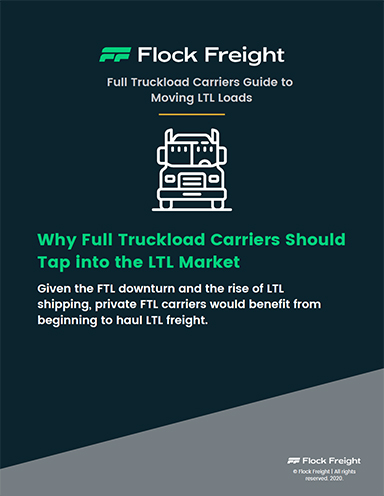Why Full Truckload Carriers Should Tap into the LTL Market
In this Full Truckload carriers Guide to moving LTL loads, we discuss the FTL downturn and the rise of LTL shipping, and how private FTL carriers would benefit from beginning to haul LTL freight.
Less-than-Truckload vs. Full Truckload Market Deep Dive
Full Truckload (FTL) also loses on the fronts of long-distance shipping and last-mile delivery.
When it comes to moving e-commerce freight cross-country, railways beat FTL because of price.
FTL shipping costs - including fuel, labor, and maintenance - are much higher than those of railways, which realize savings from factors like government-subsidized infrastructure.
In terms of last-mile delivery, FTL carriers can’t keep up with LTL carriers, which create efficiencies with their broad networks of retail docks.
Recently, this scenario has left FTL carriers with little choice but to sell trucks and move less freight.
Without question, e-commerce has revealed fragments in the freight industry, with Less-than-Truckload (LTL) carriers performing much better than FTL ones. LTL carriers have even started to raise rates.
According to a JOC article, projections by Coyote Curve, DAT Solutions, and IHS Market estimate a rise in rates “back into positive year-over-year territory in the first half of 2020, with the PPI rising 3.2% year over year in the second quarter.”
As predicted, Old Dominion Freight Line enacted a 4.9% general increase for rates under the 559, 670, and 550 tariffs on March 2, 2020, and other companies are following suit.
Clearly, LTL is better-positioned than FTL at the moment. It may be the right time for FTL carriers to consider other applications of their operations, like tapping into LTL.
While the LTL sector is fairly concentrated (with about 25 carriers owning 80% of the market), it’s much less volatile than the FTL sector. Plus, LTL drivers earn an average of $20,000 more per year than FTL drivers. They also have the opportunity to expand their connections and enjoy better-quality relationships.
The Best Way to Win Loads
Powerful fleets are the foundation for moving all kinds of freight. Once carriers’ fleets are up and running, they have a number of options for securing loads, including:
- Load matching apps, which connect them to shippers without a middleman
- Load boards, which help them find loads to pick up from shippers and brokers
- Customers directly, which comes with its own set of benefits
- Brokers (like Flock Freight), who tap into their networks to assign loads to dependable carriers
What’s Related
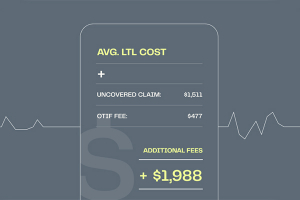
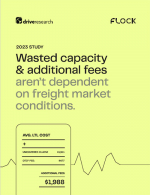
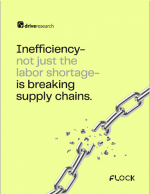
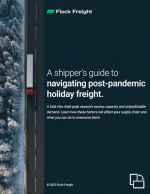
Favorites





